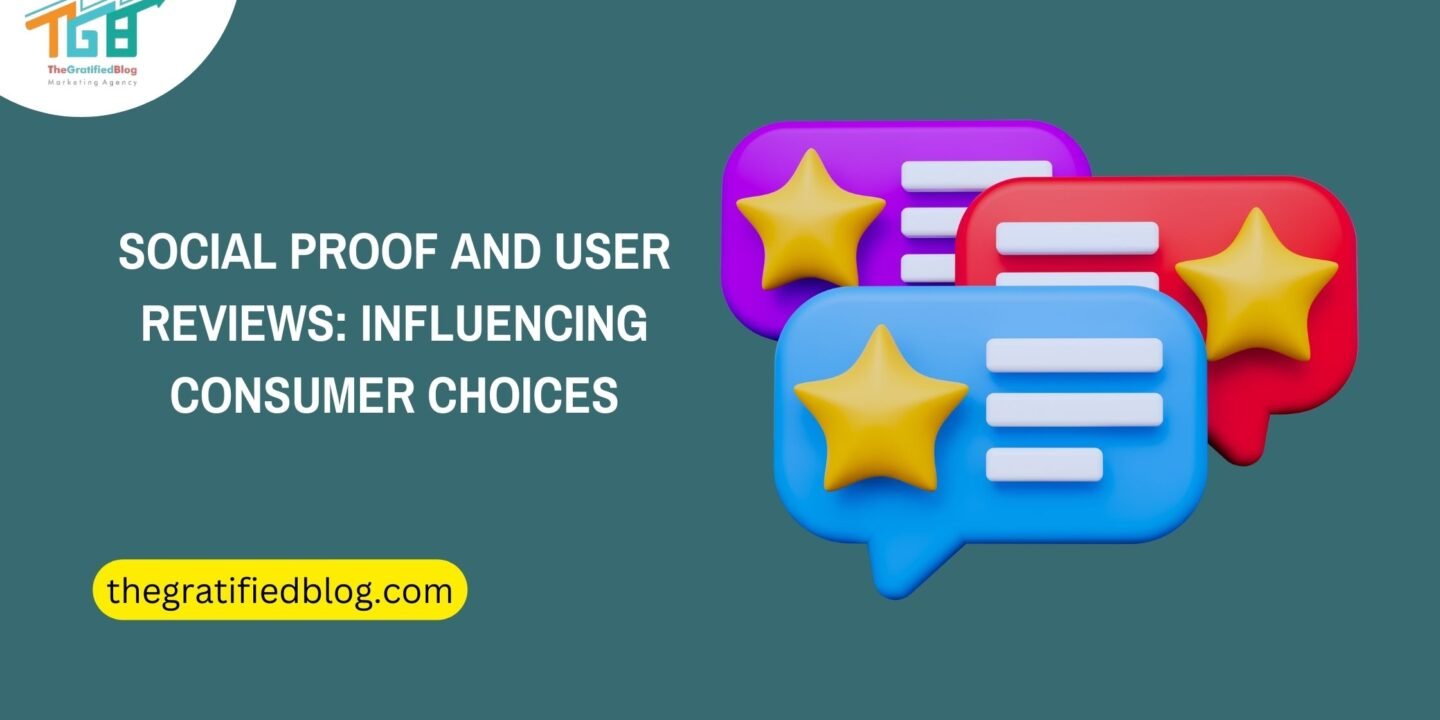
In today’s fast-paced digital landscape, where choices abound and online interactions shape decisions, Social Proof and User Reviews emerge as a guiding light for consumers seeking authenticity and credibility. Imagine navigating many options and stumbling upon a platform with positive user reviews and testimonials. This influx of favorable feedback from fellow consumers can be a beacon of trust, guiding individuals to make informed decisions. This article delves into the multifaceted world of social proof and user reviews, exploring their transformative impact on perceptions and decisions and why businesses aiming for success often employ a leading digital agency to harness these dynamics effectively.
Leveraging Social Proof And User Reviews

Social proof is a psychological phenomenon deeply rooted in human behaviour. It operates on the premise that when people are unsure about a decision, they look to others for guidance. In the digital realm, this translates to users seeking validation from the experiences and opinions of their peers. A website adorned with positive user reviews and ratings signals credibility and trustworthiness. This form of social proof instils confidence in potential customers by suggesting that others have already had positive experiences. The social influence theory comes into play here, as individuals are more likely to make decisions that align with the behaviour of others, believing that a collective decision is more informed.
Encouraging User Reviews And Testimonials
Encouraging users to leave reviews and testimonials is a strategic maneuver that businesses undertake to enhance their online presence. Positive user reviews serve as valuable feedback for the company and act as endorsements that influence prospective customers. Online platforms often include dedicated sections for users to share their experiences, whether purchasing a product, using a service, or staying at a hotel. Enterprises may offer incentives, such as discounts or exclusive content, to motivate users to leave reviews. These reviews become a valuable resource for potential customers, offering insights into real-life experiences and influencing their decision-making process.
Reputation Management In The Digital Age
In the digital age, reputation management extends far beyond public relations. It entails actively monitoring and responding to online reviews and feedback. Negative reviews can tarnish a brand’s image and erode trust if left unattended. Hence, reputation management involves a proactive approach, where businesses promptly acknowledge negative experiences, offer resolutions, and highlight positive feedback. This engagement demonstrates a commitment to customer satisfaction and transparency. Reputation management also encompasses leveraging positive reviews to enhance brand credibility, ensuring that satisfied customers’ voices resonate prominently in the digital landscape.
Integrating User-Generated Content (UGC)
It is a powerful tool that bridges the gap between businesses and their customers. UGC includes photos, videos, reviews, and posts created by users interacting with a brand’s products or services. This content reflects authentic experiences and opinions, adding an element of genuineness to a brand’s image. Businesses can integrate UGC into their marketing strategies by sharing customer content on their platforms. This practice showcases the brand’s reach and demonstrates appreciation for the customers’ voices. UGC connects users personally and contributes to building a community around a brand.
Responding Effectively To Online Feedback
Responding effectively to online feedback is a skill that requires tact, empathy, and transparency. Whether the feedback is positive or negative, acknowledging user interactions showcases that the business values customer opinions. Responding to positive feedback reinforces customer loyalty and appreciation. Conversely, addressing negative feedback promptly and constructively can salvage a situation and even turn an unsatisfied customer into a loyal advocate. Responses should focus on finding solutions and highlighting steps taken to address concerns. This interaction demonstrates accountability and a commitment to continuous improvement, reinforcing trust and credibility in the eyes of both existing and potential customers.
Harnessing The Influence Of Influencers
Social media has given birth to a new breed of influencers—individuals with a significant following and the power to sway opinions. Influencer marketing involves collaborating with these figures to amplify a brand’s message. Businesses tap into their credibility and reach by aligning with influencers who share the brand’s values and target audience. Influencers provide a personalized touch to endorsements, as their followers perceive them as relatable and trustworthy sources. Businesses often engage influencers to review products, share experiences, and offer recommendations, leveraging social proof’s power through authentic, influential voices.
Fostering A Sense Of Community
Online communities are virtual spaces where like-minded individuals connect to share experiences, insights, and recommendations. Businesses that engage with these communities become part of the conversation, fostering a sense of camaraderie and trust. In these spaces, users engage in discussions, ask questions, and seek advice from peers who have encountered similar situations. By actively participating in these conversations, businesses become trusted sources of information. They provide value by offering solutions, clarifications, and insights, strengthening their brand image as a reliable and customer-centric entity.
Conclusion
In the expansive realm of the digital age, Social Proof and User Reviews materialize as influential forces that mould brand perception and steer consumer behaviour. As businesses seek to navigate this intricate landscape, recognizing social proof’s power and the value of user reviews becomes paramount. These elements collectively weave a narrative of authenticity and trust that resonates with the modern consumer. The collective experiences of others often shape the journey from curiosity to commitment, and the proactive integration of social proof and user reviews becomes a strategic imperative.
As businesses aspire to establish a credible online presence that resonates with consumers, they often recognize the strategic wisdom to employ a leading digital agency. In doing so, they entrust experts who comprehend the intricacies of social dynamics to amplify the influence of social proof, effectively leveraging the collective voice of satisfied customers. In this age of connectivity, the synergy between businesses, consumers, and digital agencies culminates in a harmonious symphony of trust, authenticity, and shared experiences.








No Comments